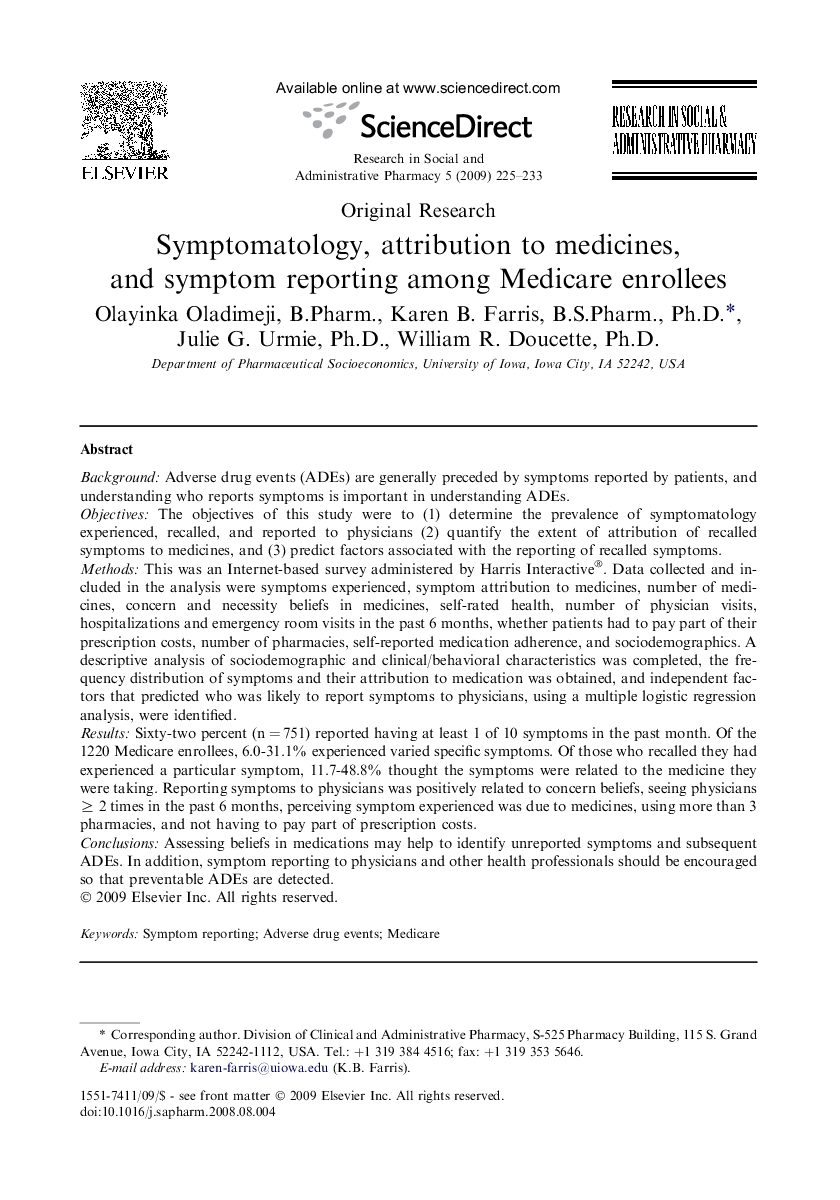| Article ID | Journal | Published Year | Pages | File Type |
|---|---|---|---|---|
| 2509144 | Research in Social and Administrative Pharmacy | 2009 | 9 Pages |
BackgroundAdverse drug events (ADEs) are generally preceded by symptoms reported by patients, and understanding who reports symptoms is important in understanding ADEs.ObjectivesThe objectives of this study were to (1) determine the prevalence of symptomatology experienced, recalled, and reported to physicians (2) quantify the extent of attribution of recalled symptoms to medicines, and (3) predict factors associated with the reporting of recalled symptoms.MethodsThis was an Internet-based survey administered by Harris Interactive®. Data collected and included in the analysis were symptoms experienced, symptom attribution to medicines, number of medicines, concern and necessity beliefs in medicines, self-rated health, number of physician visits, hospitalizations and emergency room visits in the past 6 months, whether patients had to pay part of their prescription costs, number of pharmacies, self-reported medication adherence, and sociodemographics. A descriptive analysis of sociodemographic and clinical/behavioral characteristics was completed, the frequency distribution of symptoms and their attribution to medication was obtained, and independent factors that predicted who was likely to report symptoms to physicians, using a multiple logistic regression analysis, were identified.ResultsSixty-two percent (n = 751) reported having at least 1 of 10 symptoms in the past month. Of the 1220 Medicare enrollees, 6.0-31.1% experienced varied specific symptoms. Of those who recalled they had experienced a particular symptom, 11.7-48.8% thought the symptoms were related to the medicine they were taking. Reporting symptoms to physicians was positively related to concern beliefs, seeing physicians ≥ 2 times in the past 6 months, perceiving symptom experienced was due to medicines, using more than 3 pharmacies, and not having to pay part of prescription costs.ConclusionsAssessing beliefs in medications may help to identify unreported symptoms and subsequent ADEs. In addition, symptom reporting to physicians and other health professionals should be encouraged so that preventable ADEs are detected.
